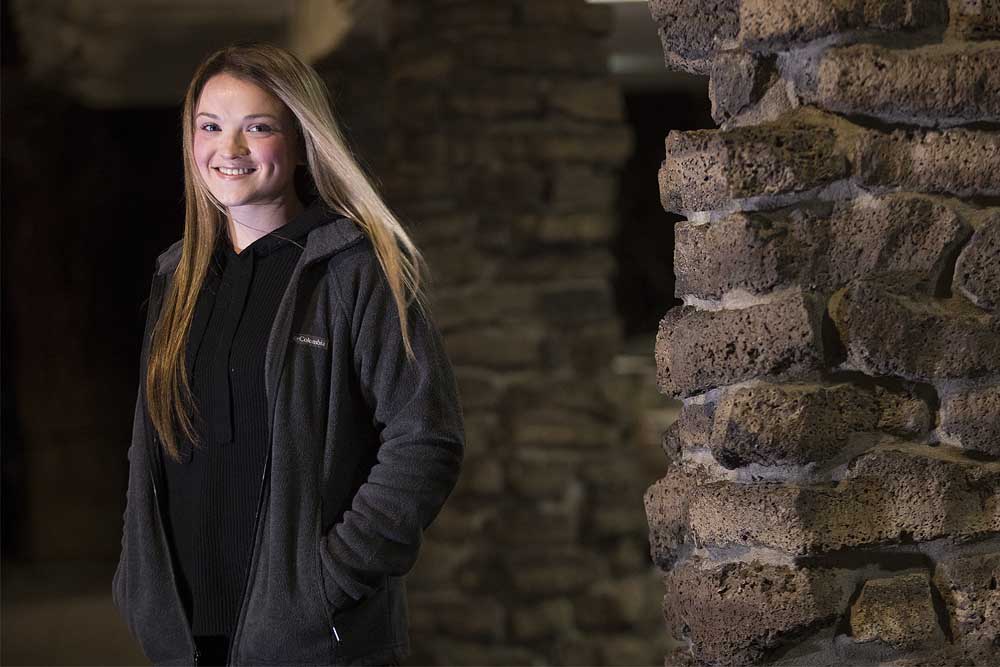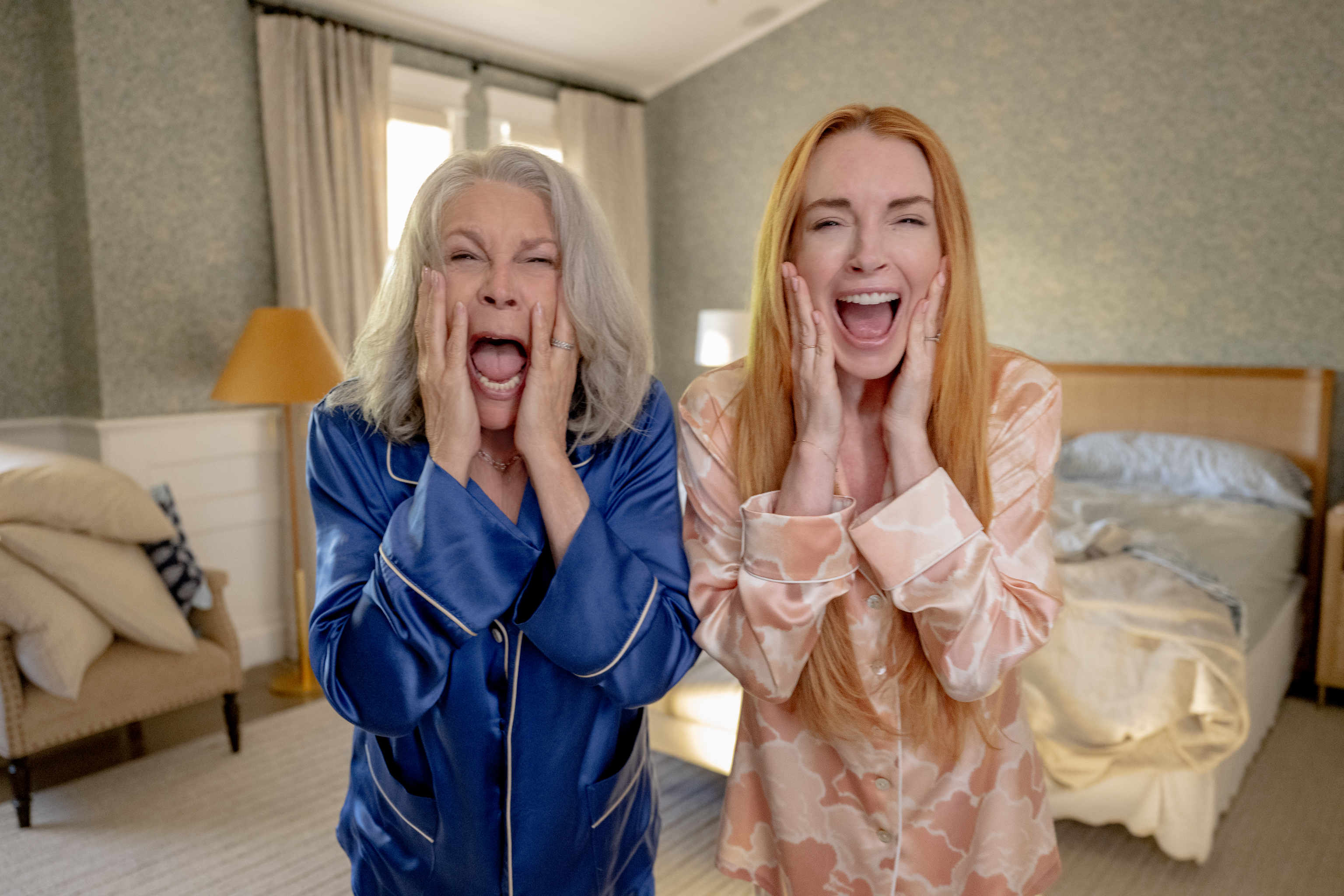Oregon removed her Deschutes County felony conviction. Now she’s starting anew.
Published 11:15 pm Saturday, February 4, 2023

- Caitlin Silveria is among a growing number of people who have successfully had their felony convictions removed thanks to a new law designed to give people a second chance “in the interest of justice.” “I cried a lot," Silveria said of the day she found out. "I screamed a little bit. I texted a lot of people."
Caitlin Silveria peeled open the envelope and started to cry.
Inside was a seven-page notice the 26-year-old had spent more than a year trying to obtain. It said the state had permanently removed a 2017 felony conviction for heroin delivery from her record in Deschutes County Circuit Court. What’s more: all charges against her that had been filed but dismissed were sealed.
Trending
Now, she could legally say she had never been convicted.
“I cried a lot. I screamed a little bit. I texted a lot of people,” she said.
Silveria is among a growing number of people who have successfully had their felony convictions removed through the legal process known as expungement. Since Oregon passed Senate Bill 819 in 2021, people convicted of some felonies can request to partner with district attorneys to petition for full or partial removal of their criminal records “in the interest of justice.”
The law’s passage has driven a nearly four-fold increase of such requests in Deschutes County, according to data obtained by The Bulletin.
In 2022, the Deschutes County Circuit Court received 945 motions from people seeking to set aside their convictions, up from 254 the year prior. Nearly half involved people convicted of felonies, 38% involved misdemeanors and 14% involved civil infractions, juvenile cases and administrative cases.
Over the past two years, Deschutes County judges have approved about 87% of all motions to set aside these convictions, according to Angie Curtis, trial court administrator for the Deschutes County Circuit Court.
Trending
A felony conviction can hinder many facets of one’s life, bringing with it a stigma that can be hard to overcome, said Brittany Hill, a staff attorney for the Criminal Justice Reform Clinic at Lewis & Clark Law School, who represented Silveria.
Often, people who are convicted are denied housing and employment, Hill said. Some can’t volunteer for their child’s school field trips or coach youth sports. Others can’t volunteer to help at-risk youth or adults in prisons or jails.
“They no longer are who they are,” Hill said. “They are their conviction.”
The clinic identifies cases like Silveria’s and works with prosecutors to remove the conviction from the record. Since the new law passed, the clinic has filed requests in 38 cases like Silveria’s. Eleven have been granted, Hill said. The group plans to file at least 20 more by May.
In summer 2021, Silveria partnered with the Deschutes County District Attorney’s Office to have her conviction removed from records after years of positive progress in her life. But her request was denied by Deschutes Deschutes County Circuit Court Judge Beth Bagley because her Class A felony conviction was not eligible. Instead, Bagley reduced it to a Class C felony, allowing her to apply again, this time with success.
“This is Caitlin’s victory,” Hill said. “She’s done the hard work. She’s transformed.”
Deschutes County District Attorney Steve Gunnels said his office does not work through the process of removing a felony conviction with just any case. Some criminal cases — like aggravated murder and child sexual abuse or mistreatment — are not eligible under Oregon law.
But Gunnels said many of the cases are like Silveria’s — drug crimes, criminal trespassing or disorderly conduct. The successful ones typically involve a standalone event, and the person isn’t a career criminal or has long been crime free. Many are eligible because they haven’t recently had run-ins with law enforcement “that would signal that they’re still engaged in criminal activity,” Gunnels said.
Even though the new law is resulting in increased workload for his office, Gunnels said the district attorney’s office supports people applying to have their felony conviction removed if they’re eligible under state law.
“We support that because if somebody has a single conviction for an offense that is subject to (removal), we want them to get it turned around and be law-abiding citizens and get a job,” he said. “That’s our goal in the DA’s office is to have people lead law abiding, productive lives,” he added.
Young, lost, struggling with addiction but trying to get her life back, Silveria’s case was exactly the kind the Lewis & Clark clinic looks for, Hill said.
Before, Silveria’s life was hampered by her felony conviction. Applying to colleges and educational programs was difficult or impossible. Landlords wouldn’t rent to her. She faced harassment and cruel comments after sharing her story publicly, sometimes in the form of text messages from phone numbers she didn’t know.
And under Oregon law, she couldn’t obtain certain teaching credentials, or get a job working with people recovering from substance abuse in drug treatment facilities.
“That felony really limited me from helping people like me,” she said.
So, Silveria turned her life around.
She got sober and didn’t relapse. She completed the conditions of her probation. She got a job working at a citrus packing plant in California’s Central Valley, where she still lives. She returned to school and graduated in December with a bachelor’s degree from Fresno Pacific University. Recently, she was admitted to Arizona State University.
“It’s all these good things that I’ve worked so hard for, and have driven my sobriety,” she said. “It’s really fulfilling.”
Silveria said the ridicule she’s faced and the grueling process toward having her records removed hasn’t made her bitter. “The only person I can be bitter at is myself,” she added. In fact, she said she’s grateful for the experience and the lessons that came with it.
“All my hard work has finally paid off,” she said. “It’s finally not been for nothing.”








